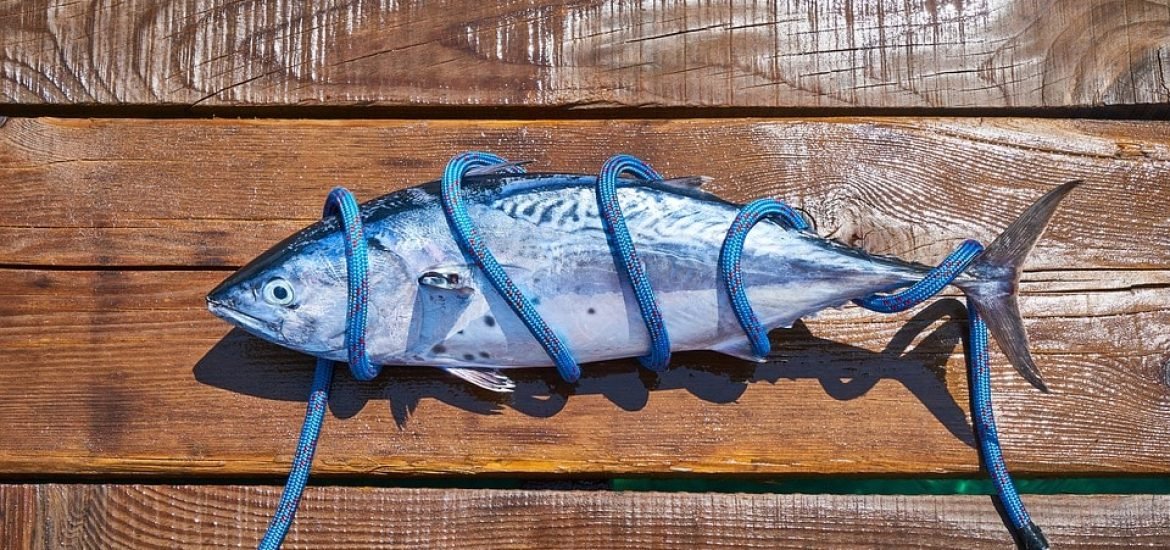
Researchers at the University of Exeter tagged bluefin tuna in UK waters using acoustic tracking tags. According to the authors, this is the first time these massive fish (which can reach 2.5m long) were spotted in this area using these tags. These fish were once abundant around the coastline, but numbers started declining in the 60s due to overfishing. After more than 60 years, bluefin tuna have finally returned to UK waters.
The team attached individually coded acoustic tags to 30 bluefin tuna and placed listening stations moored on the seabed in strategic locations. The messages captured by these stations allow researchers to understand how bluefin tuna moves around in UK waters and how long they stay in the same region. For example, researchers are keen to learn how quickly they could travel across the Channel to France.
“We typically see bluefin tuna in waters around the southwest UK in the summer and autumn months but do not know if we are seeing the same fish every year, nor the same fish all summer,” said Dr. Lucy Hawkes, Senior lecturer in ecology at the University of Exeter, is leading the bluefin tagging work. “For the first time, we will be able to tell, with the acoustic tracking tags sending data for up to five years.”
So far, the team has already received 81 messages from multiple tags across five listening stations in the southwest UK, including messages from the same fish several times. This work is part of the FISH INTEL project and is funded by the European Regional Development Fund (ERDF) via the Interreg France (Channel) England Programme. The aim is to set a network of acoustic receivers on both sides of the Channel to follow these beautiful animals.
Ultimately, this work will help authorities on both sides of the Channel to implement correct Ecosystem Based Fisheries Management (EBFM) programmes to ensure human activities in the area, including fishing and extract industries, continue to function in a sustainable way. “Important fish like bluefin tuna are sentinels of healthy ecosystems, they travel between waters that provide them with food and clean conditions,” said Dr. Emma Sheehan, Project Leader for FISH INTEL.
Data collection will continue until 2026, which will allow researchers to gain a deeper understanding of the importance of UK waters for the bluefin tuna population. At the moment, tuna fishing is banned in the UK, and any fish caught by accident must be released back into the water. However, there are calls for fishing to resume, with some fishing groups suggesting a “live release” to catch, tag, and release tuna back into the ocean.